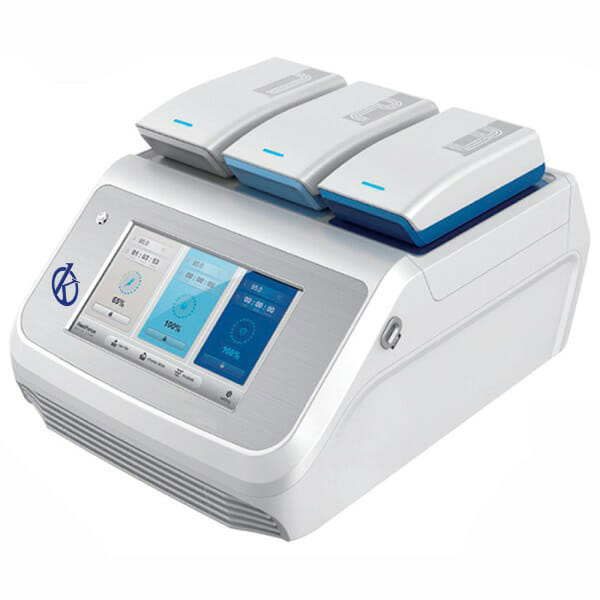Genetics has traditionally been a discipline that focused on the analysis of hereditary variation; these genetic variants served as a means (as markers in genetic mapping or in population studies) or as an end (wild-type structure/function studies versus mutants).
The advent of molecular cloning and recombinant DNA techniques, such as Southern transfer, allowed the analysis of DNA sequence variation and marked a new era in molecular genetics. The introduction of polymerase chain reaction (PCR), an in vitro method for the enzymatic amplification of specific DNA segments from a complex genome, has greatly simplified the study of sequence variation and, as a result, transformed the way genetic analysis can be performed.
PCR amplification of a specific DNA segment from genomic DNA or from RNA, after reverse transcription, can replace the construction of genomic libraries for many applications and, in others, can greatly facilitate subsequent procedures, such as:
- Cloning.
- Sequencing.
- Oligonucleotide probe hybridization.
- Restriction Site Analysis.
On the other hand, the availability of automated sequencing tools promises that PCR product sequence analysis will not only be a critical research procedure, but ultimately can also be used in a clinical diagnostic context, for various genetic diseases.
Advantages of using PCR in genetic characterization
In addition to simplifying many procedures and thus enabling the use of molecular techniques in a wide variety of biological disciplines, PCR has made possible new approaches to genetic analysis based on the ability to amplify very small samples (e.g. sperm mapping). There are a number of advantages to using a PCR assay to genotype a DNA sample:
- The trial takes only a few hours compared to Southern transfer, which can take days or weeks.
- PCR is capable of being automated, allowing large numbers of samples to be quickly typed with little labor required.
- PCR is DNA economical; only picograms or nanograms are required, while nanograms or micrograms are required for Southern transfer of genomic DNA.
- In a PCR reaction, many different genetic loci can be typed simultaneously using multiple amplification using multiple primers pairs.
As a result of these economies, several laboratories have converted known RFLP markers into a PCR format, and many searches for new polymorphisms have focused on those that can be tested by PCR. The most basic requirement for PCR analysis is a set of primers flanking a specific polymorphic DNA region. Once a specific PCR product has been amplified, various procedures can be used to determine the genotype of a sample.
Analysis of DNA sequences to PCR amplified products
The most complete characterization of a PCR product is the determination of the nucleotide sequence; this is the most sensitive way to reveal the polymorphism. Although amplified DNA sequence analysis was initially performed on cloned PCR products, increased specificity has made direct sequencing of PCR products the preferred approach for most applications.
Direct sequencing avoids potential problems associated with poorly incorporated rare bases (multiple clones must be sequenced to detect rare PCR artifacts such as erroneous incorporation) but, in amplification of multiple gene families or complex heterozygous samples, cloning is often useful for separating the different alleles or loci.
Chain termination sequencing is performed with labeled primers (radioactive or fluorescent), labeled DNTP, or labeled deoxy terminators. Single-strand molds can be generated using asymmetric PCR, an approach in which one of the two primers is limiting, or using a biotinylated primer so that a strand of the PCR product can be captured by a streptavidine pearl.
The use of thermostable DNA polymerases has allowed the cycle sequencing approach in which repeated extension and denaturation cycles result in a linear accumulation of primer extension products that increase the sensitivity of the sequencing reaction. Double-stranded molds can be easily sequenced by minimizing the re-association of mold chains.
Kalstein thermocyclers for the realization of PCR
The PCR reactions are carried out in a thermocycler, which perform the heating cycles so that the denaturation, alignment and elongation of the chain occur. The Kalstein thermo-cyclers incorporate the latest technologies in the field, generating very robust instruments, with a high precision in temperature control and works with a low noise level and low energy consumption. Prices, quotes and purchases can be found at HERE or at HERE.


